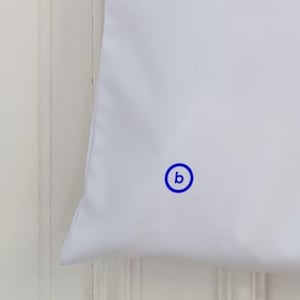pull a face: Idiom Meaning and Origin
What does ‘pull a face’ mean?
The idiom "pull a face" means to make a facial expression, usually one that shows dislike, disgust, or annoyance.

Idiom Explorer
The idiom "suck face" refers to an intense or passionate kissing session between two people. It is often used informally and can imply a lack of discretion or restraint.
The idiom "see red" is often used to describe a strong emotional reaction, particularly anger or rage. When someone "sees red," it means that they become so angry that their vision figuratively turns red, suggesting an intense and uncontrollable anger that may blur rational judgment.
The idiom "save someone's face" means to protect someone's reputation or dignity by preventing them from feeling embarrassment or humiliation.
An idiom often used to describe a person who is disliked or considered bad, with negative qualities or behavior.
One of the most popular idioms in English is "rotten egg." This phrase describes a person who is considered bad or unpleasant. The idiom originated in the early 19th century and is still commonly used today.
The idiom "roll one's eyes" refers to the action of moving one's eyes upward or to the side in a way that shows annoyance, disbelief, or disapproval towards something or someone.
The idiom "red face test" is a metaphorical expression that refers to a situation where someone is embarrassed or ashamed by their actions or words. It implies a test of one's honesty, credibility, or integrity, as one might turn red in the face when feeling guilty or caught in a lie.
The idiom "raise eyebrows" means to cause surprise, curiosity, or disapproval. It suggests that something is unexpected or unusual, often leading others to question or doubt the situation or action.
The idiom "pull one's finger out" means to start taking action or making an effort after a period of inactivity or procrastination.
Decoding Facial Expressions
To pull a face means to make a contorted or grimacing facial expression to convey a specific emotion or reaction. It is primarily used in informal contexts and is commonly recognized in English-speaking countries, including the United States.
Facial expressions are a fundamental means of conveying emotions and attitudes, and pulling a face is a way to emphasize a particular feeling or response. The phrase can be associated with a variety of emotions or reactions, such as disgust, disapproval, surprise, or amusement. It implies a deliberate and often exaggerated action, highlighting the intention to convey a strong emotional response through facial expressions.
Pulling a face is a figurative expression that relies on visual imagery to convey its intended meaning. It is idiomatic in nature, meaning that its meaning cannot be deduced from the literal interpretation of its constituent words. The origins of the idiom are uncertain, as it has been used in English for centuries without a clear documented origin.
A similar idiom, "pull faces," is also commonly used to describe the act of making contorted facial expressions. This phrase emphasizes the repetitive or continuous nature of the action, suggesting that a person is making a series of different faces or expressions. It is often used in a playful or exaggerated manner to express amusement or to tease someone.
Another related idiom, "make faces," has a similar meaning to "pull faces." It refers to the act of contorting or grimacing one's facial features to express a particular emotion or reaction. Like "pull faces," it is commonly used in informal contexts and is often associated with playful or exaggerated expressions.
The idiom "have a face like the back end of a bus" is an idiomatic expression used to describe someone's unattractive or unpleasant facial appearance. It suggests that the person's face is repulsive or unsightly, drawing a humorous comparison to the unattractive rear end of a bus. This idiom is often used in a teasing or mocking manner to playfully comment on someone's physical appearance.
The phrase "frown at" is used to describe the act of making a facial expression that shows disapproval or displeasure. It involves furrowing one's eyebrows and drawing the corners of the mouth down, creating a creased or wrinkled expression. This idiom is frequently used in a literal sense to describe someone physically frowning, but it can also be used figuratively to describe an attitude of disapproval or skepticism.
The idiom "pull a fast one" is unrelated to facial expressions, but it is worth mentioning as it shares a similar structure with "pull a face." It means to deceive or trick someone in a clever or cunning way. While the phrase does not involve facial expressions, it is idiomatic in nature and shares a similar figurative use of the word "pull."
Pulling a face is a common idiom used to describe the act of making a contorted or grimacing facial expression to convey a specific emotion or reaction. It is primarily used in informal contexts and is recognized in English-speaking countries. Similar idiomatic expressions, such as "pull faces" and "make faces," also exist and emphasize the playful or exaggerated nature of facial expressions. Additionally, idioms like "have a face like the back end of a bus," "frown at," and "pull a fast one" are related to the theme of facial expressions, albeit with different meanings. These idioms contribute to the richness and versatility of the English language, allowing individuals to convey a wide range of emotions and attitudes without relying solely on verbal communication.
Example usage
Examples of how the idiom "pull a face" can be used in a sentence:
- When she tasted the medicine, she couldn't help but pull a face.
- He pulled a face of disgust after smelling the spoiled milk.
- The toddler pulled a funny face to make everyone laugh.
More "Expression" idioms

